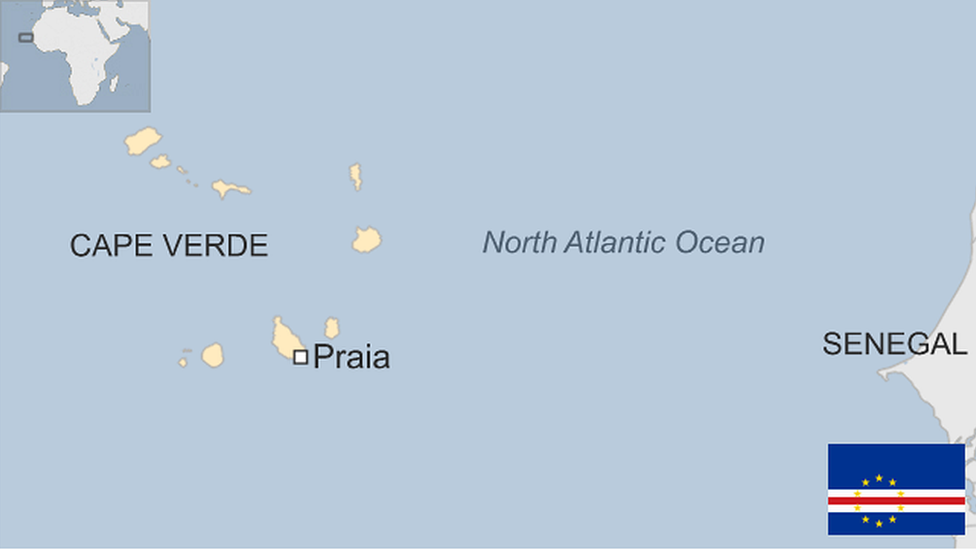Cape Verde in pictures: Living with volcanoes
- Published
The rugged volcanic islands of Cape Verde, off the West African coast, are much more than the glorious beaches enjoyed by tourists. Each island has its own unique character, as Martin Plaut recently discovered.
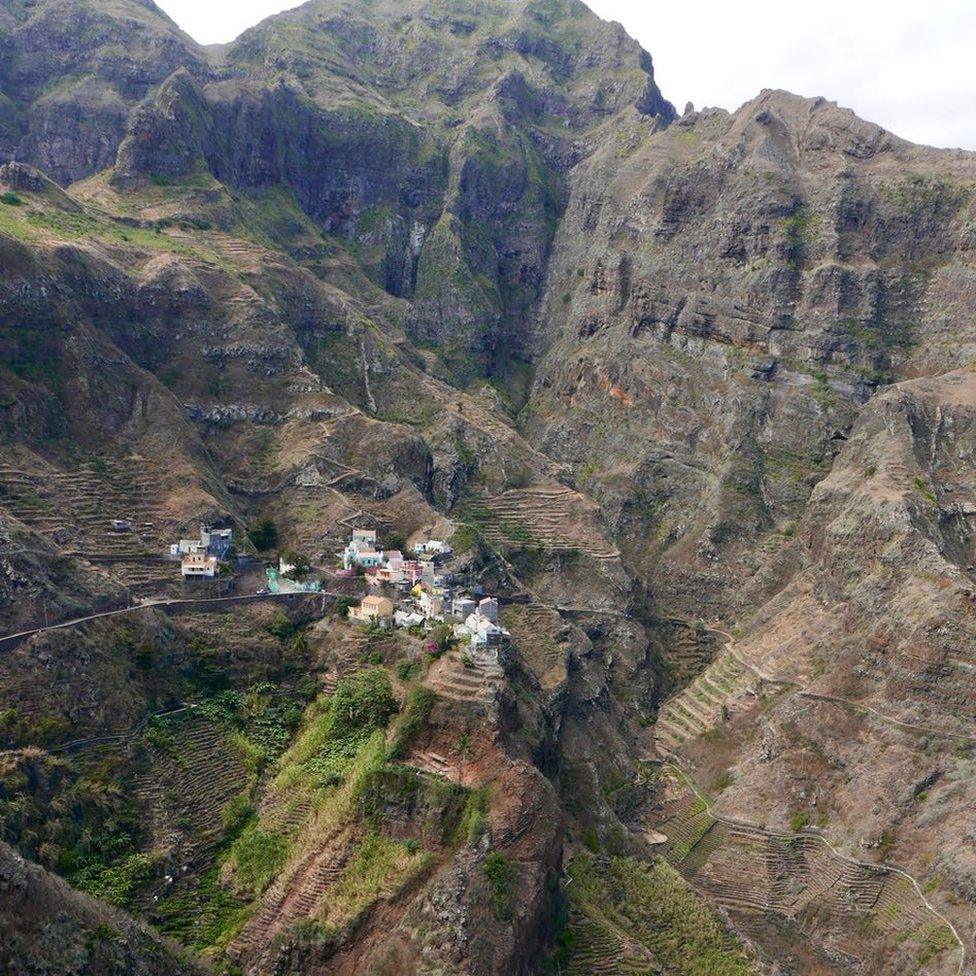
Cape Verde has a unique landscape marked by high mountains and deep valleys - the legacy of intense volcanic activity. As a result, arable land is at a premium.
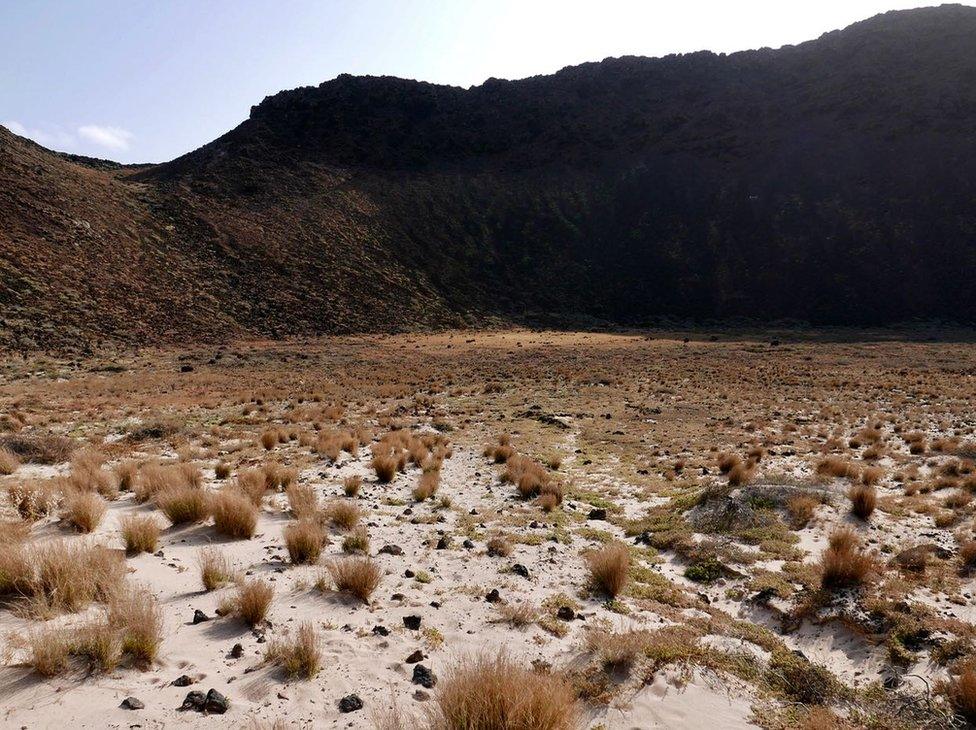
Most volcanoes such as the one in Sao Vicente are extinct, but in the nearby island of Fogo, a rare volcanic eruption occurred in 2014, forcing hundreds to flee their homes. Today, more people of Cape Verdean origin live abroad than in the country.
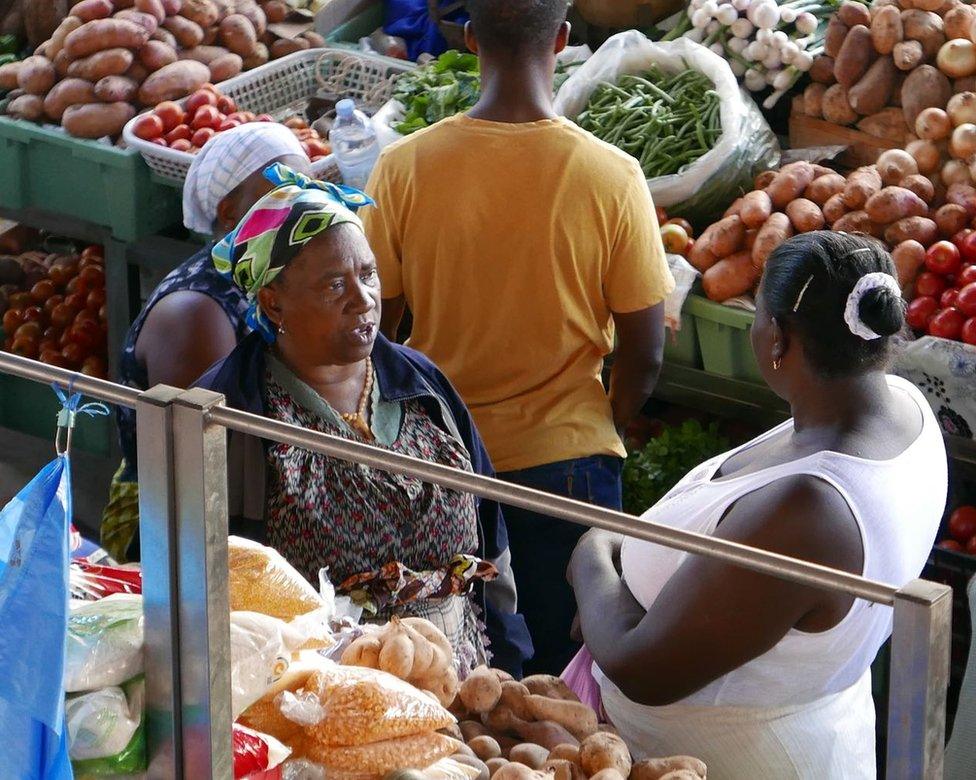
While there is not much farmland, the rich volcanic soil produces abundant fruit and vegetables for the bustling markets. However rains are scarce and water must be carefully used to ensure a harvest.
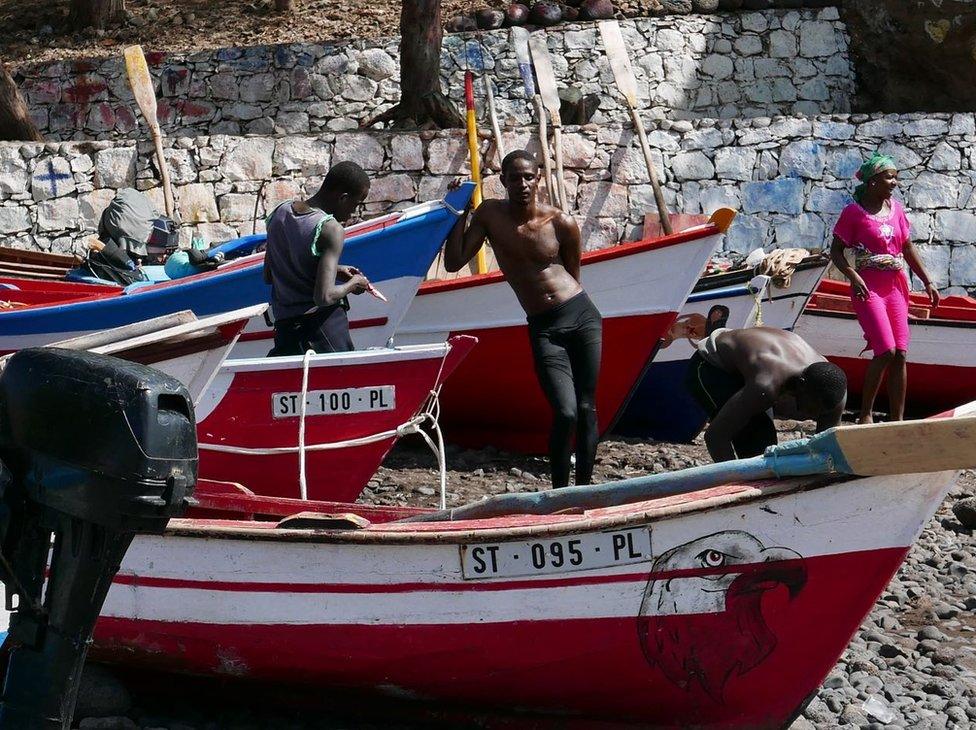
The seas around Cape Verde have abundant fish stocks, but fishermen face pressure from Chinese and European trawlers who they accuse of causing their catches to dwindle.
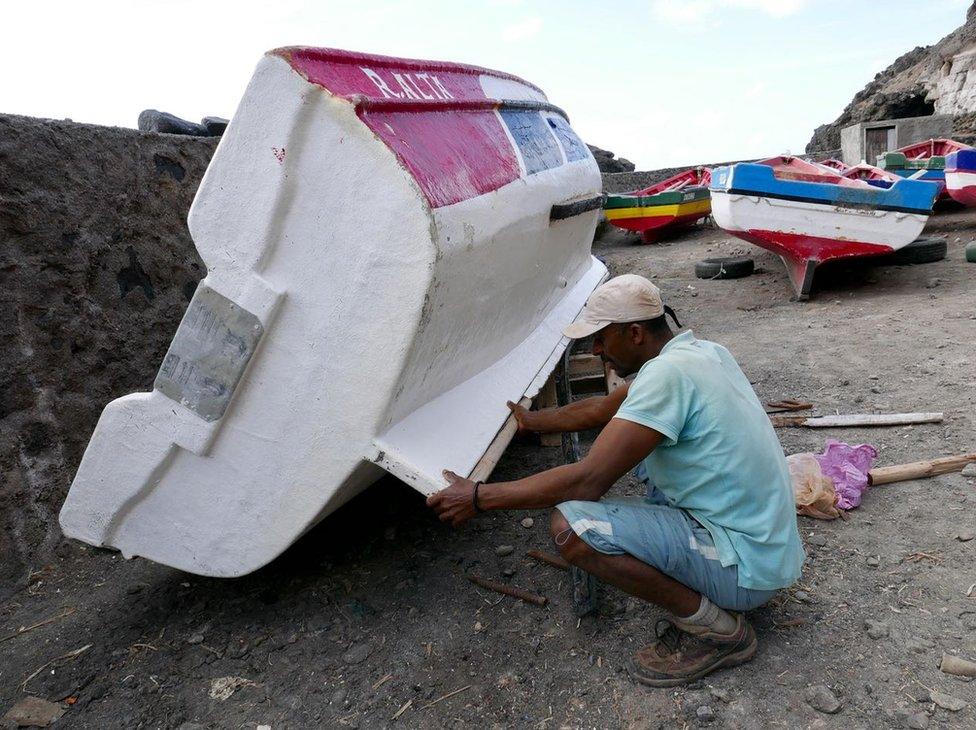
Foreign trawlers are not the only headache for fishermen. The rocky coastline of Santo Antao, with its giant waves, can be extremely dangerous.
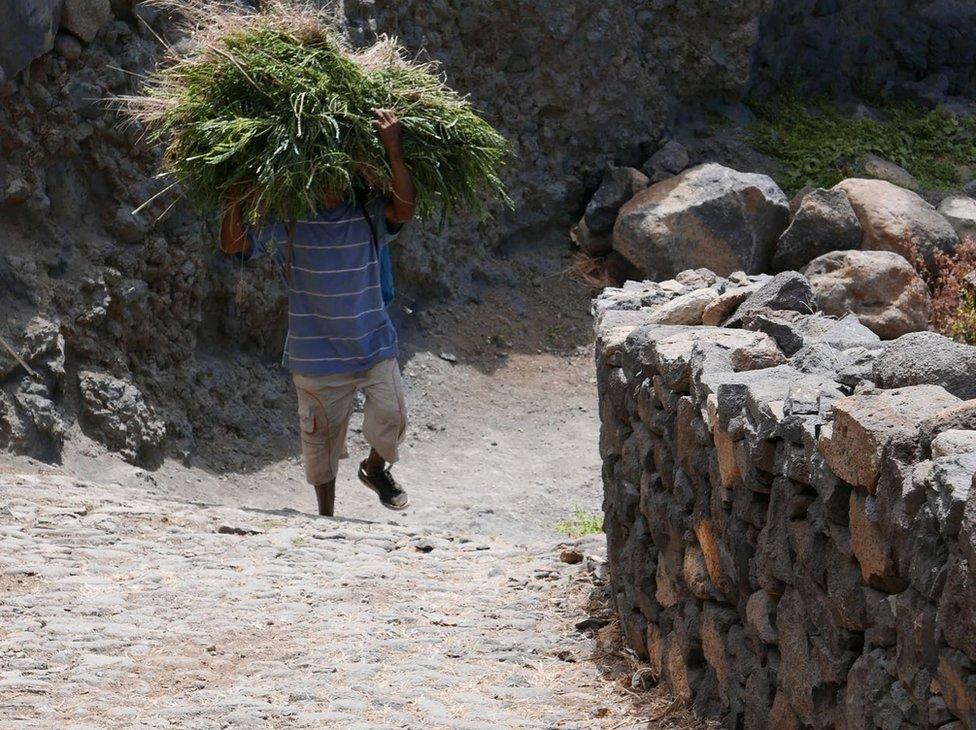
Residents who are not into fishing or farming have taken up cattle-raising and it is back-breaking work to carry fodder for livestock up the steep slopes on the islands.
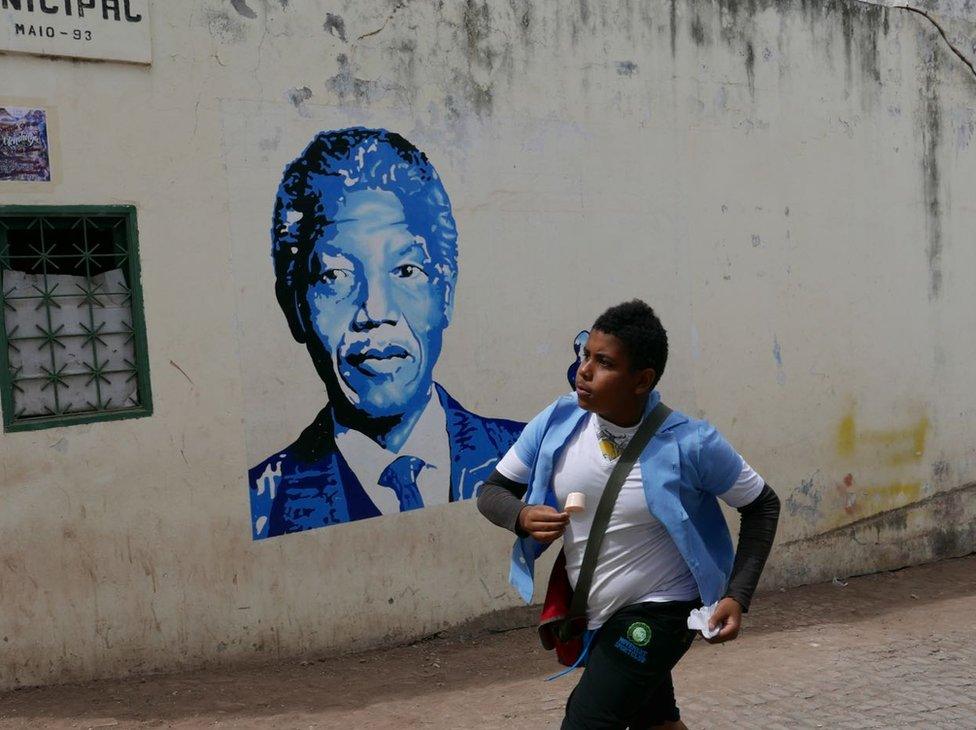
The government has invested heavily in education since independence in 1975 as a way of improving life in the country. Today, with schools even in remote villages, Cape Verde is over 70% literate.
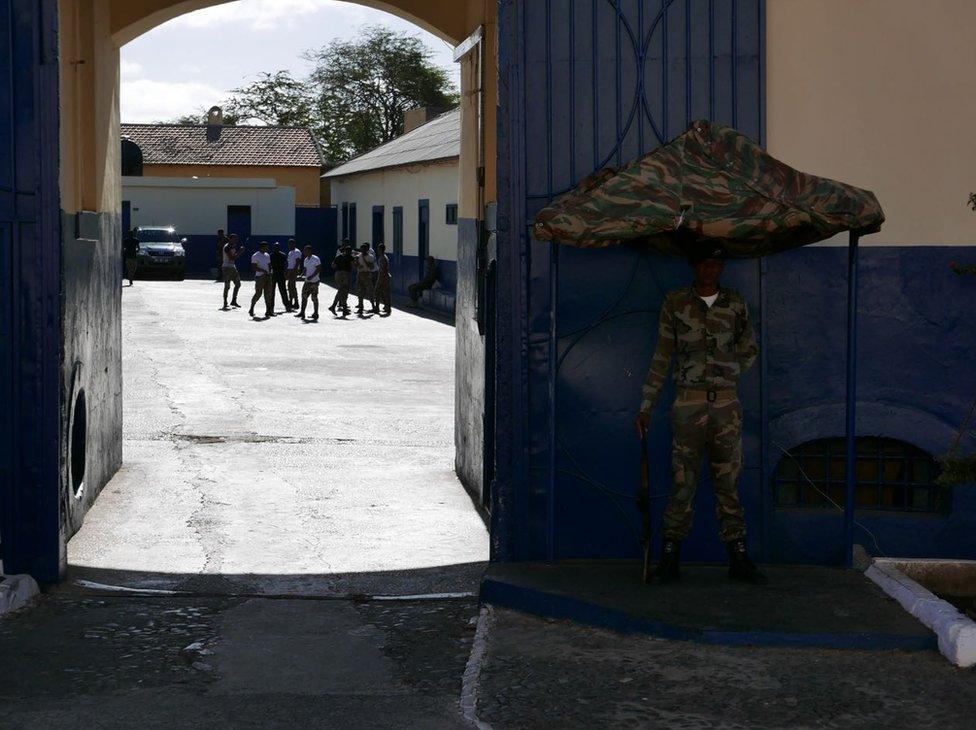
Almost as important as attending schools, Cape Verdeans are liable for military service when they reach 18. The country recalls with pride the part it played alongside Guinea Bissau in the struggle against Portuguese colonial rule.
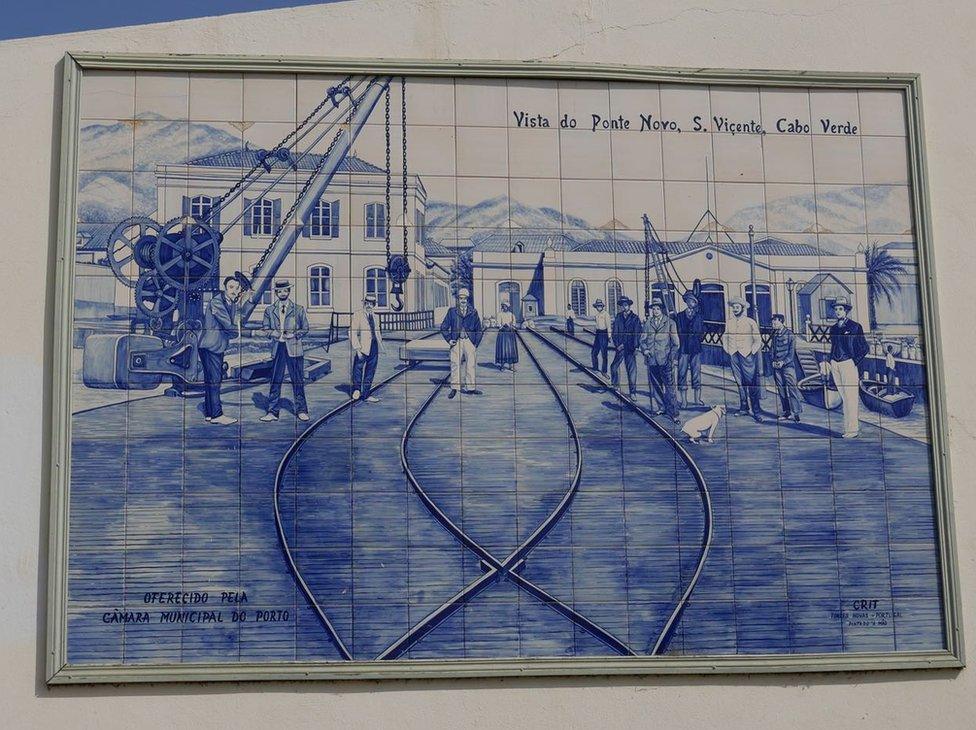
The country's sense of history goes beyond its struggle for independence - this decorative panel of tiles in Mindelo commemorates the days when Cape Verde was a coaling station, supplying Britain's navy.
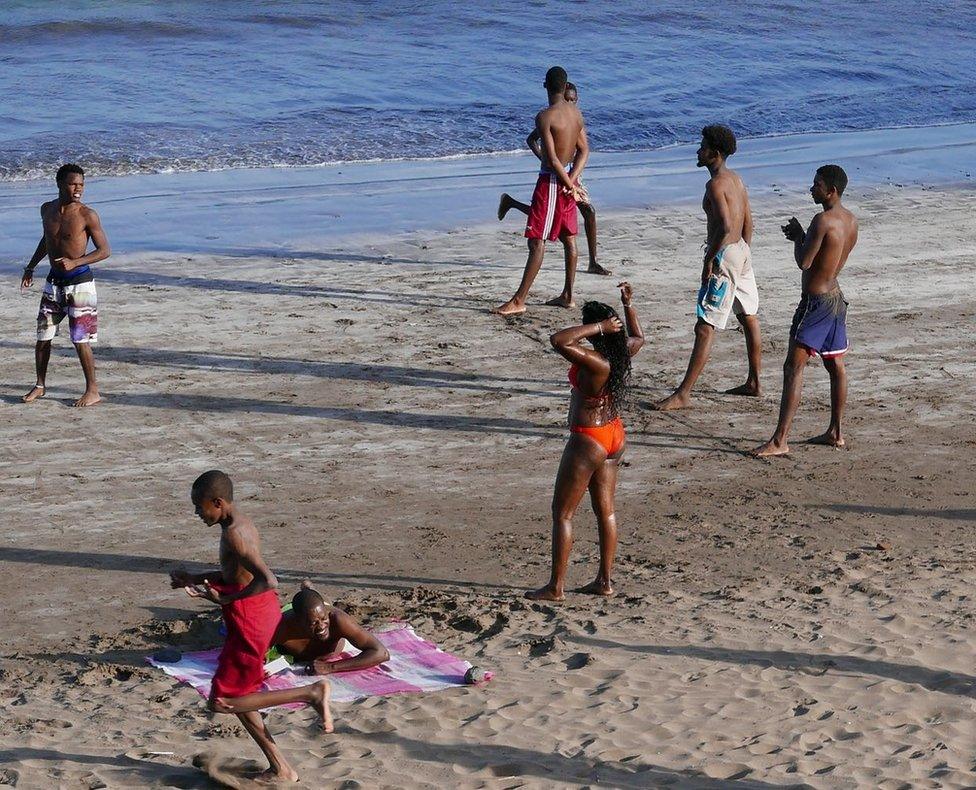
Cape Verdeans may have it tough earning a living, but they have almost constant sunshine and a pleasant climate which makes their islands a Mecca for tourists and locals to enjoy.
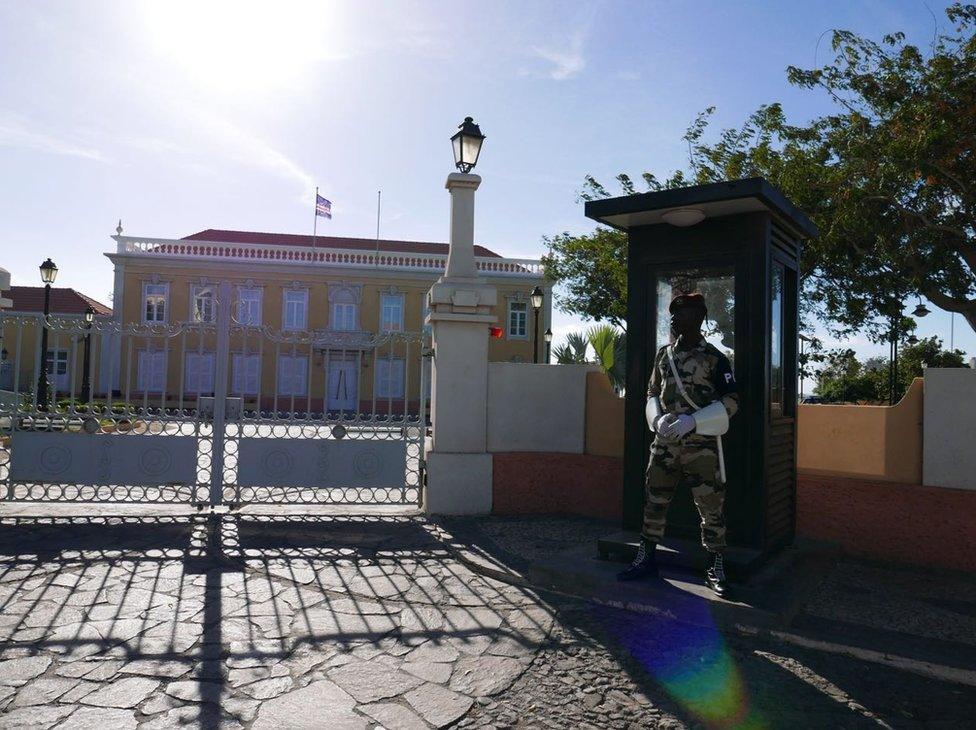
In addition to having a pleasant climate, the country is a functional democracy, where access to the presidential palace is governed by regular elections.
Photographs by Martin Plaut
- Published11 September 2023
